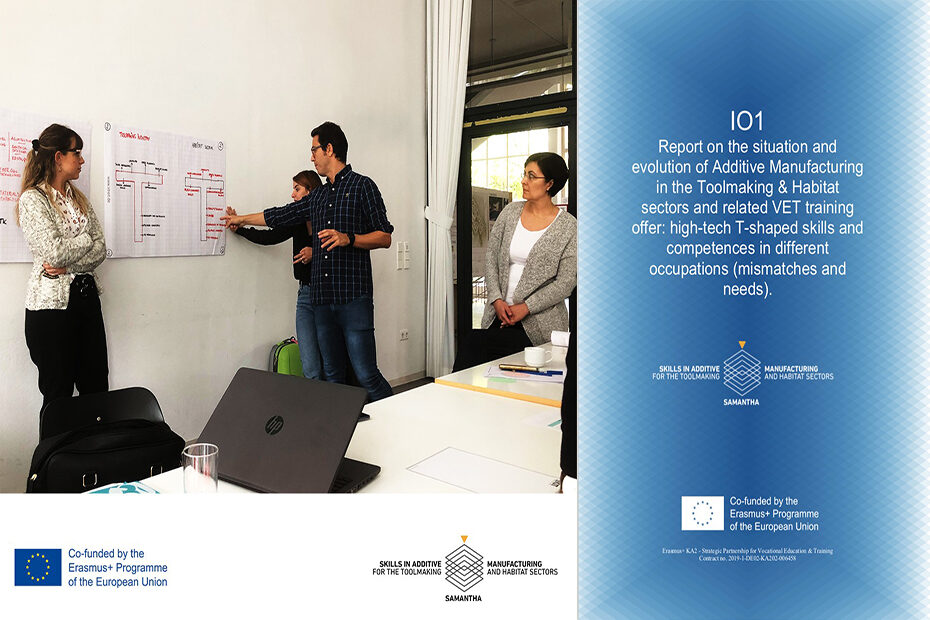“SAMANTHA”: report on the situation and evolution of Additive Manufacturing in the Toolmaking & Habitat sectors both on the industrial and VET Systems.
The first intellectual product of the SAMAMTHA (reference number: 2019-1- DE02-KA202-006458) project is now online. It is a report on the situation and evolution of Additive Manufacturing in the Toolmaking and Habitat sectors and related VET training offer: high-tech T-shaped skills and competences in different occupations (mismatches).
SAMANTHA project aims to develop a novel training program addressing the mismatched high-tech, T-shaped skills for proper implementation of Additive Manufacturing (AM) in the value chains of such sectors through high qualified workers.
The main goal of the IO1 was to find out what were the technical knowledge and transversal skills desired for the workers’ curricula and if the actual academic offer was up to date with labour market needs.
The final report is composed of different part and in particular:
- The result of a research that partners carried out during the first phase of the implementation of the project. It focuses on the definition of the two sectors (habitat and toolmaking) and an analysis of professional categories related to them.
- The result of two questionnaires one for the Habitat sector and one for the toolmaking industry with whom partners found out what is the level of implementation of Additive Manufacturing, the desired and needed technological skills in workers curriculum, competences mismatches and needs for the training in these two sectors.
- An overview on transversal skills (T-shaped) needed or mismatched in Habitat and toolmaking sectors in the current panorama.
- The result of two questionnaires addressed to teachers and students and an analysis of the current VET training offer related to the Toolmaking & Habitat sectors with regards to Additive Manufacturing in each partner country.
- The results of the standardisation of national and European qualification systems among partners countries.
Thanks to this document the consortium of partners had the possibility to understand the current scenario and the needs of the target group involved in the Toolmaking and Habitat sectors and to develop the main content of the project.
To download the document please visit the website of the project, the document is available in English, Italian, Spanish, Slovenian and German language.
